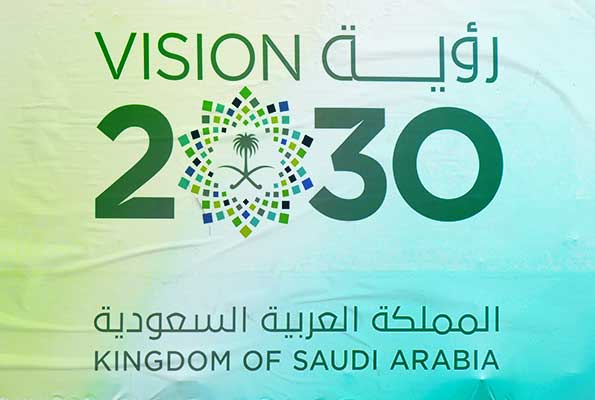Saudi Arabia’s ‘Vision 2030’ represents an ambitious roadmap for the Kingdom’s economic diversification. At the core of this visionary plan lies the strategic goal of privatizing critical sectors of the economy. To diversify revenue streams, attract foreign investment, and foster a more dynamic business environment, the Saudi government has set forth an extensive privatization program. This article explores the significance, objectives, and potential impact of the privatization initiatives outlined in the ‘Vision 2030’ agenda.
The year 2018 marked the beginning of the program. In addition to defining public and private sector partnership frameworks to improve the quality and efficiency of public services, it aims to identify government assets and services that can be privatized across various sectors, develop the privatization system and its mechanisms, and support contributions to economic development.
Through the passage of the ‘Privatization Law’ and the formation of the ‘National Center for Privatization’, the program successfully created broad frameworks for the privatization system in the previous stage. To create a favourable regulatory and investment environment that encourages short- and long-term private sector investment, the Center aims to regulate system project procedures, increase private sector participation fairly and transparently, and ensure the integrity of contract procedures.
The program helped get the supervisory committees in the private sector going. It will concentrate on maintaining the above mentioned enablers and stepping up activities to improve the private sector’s role in service provision, maximizing the value realized from government assets, and improving spending efficiency in the subsequent phase.
Additionally, 16 industries will prepare sector privatization policies, helping the government to concentrate its efforts on legislative and regulatory issues.
Diversifying The Economy
Traditionally reliant on oil revenues, Saudi Arabia recognizes the urgent need to create a sustainable and diverse economy. Privatization is pivotal in encouraging private sector participation, stimulating competition, and fostering innovation across various sectors.
By transferring state-owned assets to the private sector, the government aims to enhance efficiency, improve service quality, and boost productivity, ultimately leading to economic growth and job creation.
Objectives of Privatization
The privatization program outlined in ‘Vision 2030’ aims to achieve multiple objectives.
One of them is privatizing state-owned enterprises and enabling the Saudi government to generate funds that can be reinvested into other strategic sectors and initiatives. This will further attract foreign direct investments (FDI) by offering opportunities for international companies to participate in the Saudi market. This influx of FDI brings expertise, technology, and capital, supporting the growth and modernization of industries.
Another objective of opening up sectors to private participation is to introduce competition, and drive efficiency and innovation. Competition compels companies to enhance their offerings, improve customer service, and adopt modern practices to stay relevant and competitive.
By transferring ownership and control of businesses to the private sector, the Saudi government aims to unleash and foster a culture of innovation and enterprise.
Key Sectors For Privatization
The Saudi Arabian privatization program encompasses a range of sectors, including but not limited to:
Energy: In line with the broader objective of reducing reliance on oil, the government aims to privatize specific segments of the energy sector, encouraging renewable energy investments and promoting sustainability.
Infrastructure: Privatizing infrastructure projects enables efficient delivery of services, improves connectivity, and supports economic diversification.
Healthcare and Education: Privatization initiatives seek to enhance service quality, expand access, and leverage private sector expertise to develop cutting-edge medical facilities and educational institutions.
Tourism and Entertainment: The government aims to attract private investment and expertise to develop world-class tourism and entertainment facilities, furthering the growth of the sector and diversifying the economy.
Finance and Insurance: Opening the financial sector to privatization enhances competition, fosters innovation, and attracts international financial institutions, ultimately developing a robust and modern economic ecosystem.
Top Achievements
The program has completed the privatization of the four milling enterprises, which involved a competitive tendering process in finding strategic investors for the shares of the four milling companies. It also finalized contracts for two water desalination projects, Yanbu-4 and Jubail-3.
The government has now opened the tender for phase two after completing phase one of the efforts to solicit private funding for the development of educational buildings.
Potential Impact
The successful execution of the privatization agenda can have far-reaching positive impacts on Saudi’s economy and society. By leveraging private sector expertise, the government can create a business environment that encourages innovation, diversifies the economy, and generates employment opportunities.
Additionally, privatization can lead to improved service quality, increased efficiency, and a better customer experience across sectors. Furthermore, foreign investment and technology transfers from privatization initiatives will support economic growth, technological advancement, and knowledge sharing.
Conclusion
The privatization program outlined in ‘Vision 2030’ represents a significant step towards the transformation of the nation’s economy. By unlocking the private sector’s potential, the government aims to diversify revenue sources and attract foreign investments.



